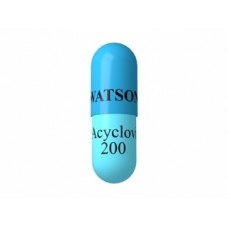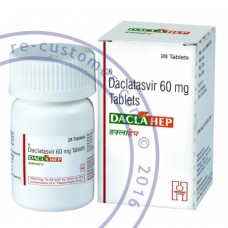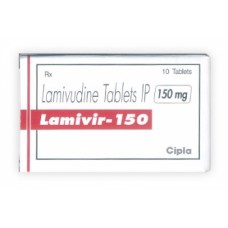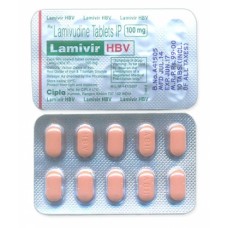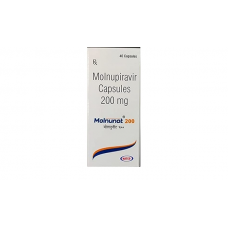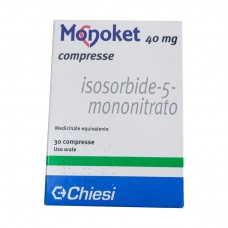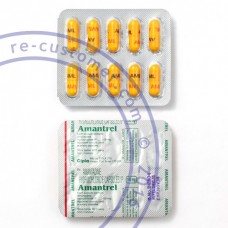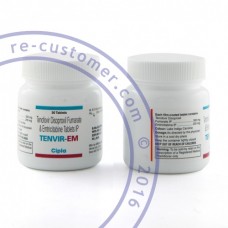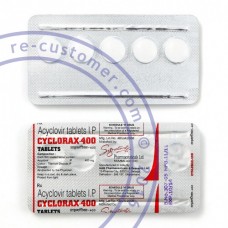
Antivirals
Antivirals are medications used to treat viral infections. They work by targeting specific viral proteins or enzymes involved in viral replication, thereby inhibiting the virus's ability to reproduce and spread.
There are many different types of antiviral drugs, and they are used to treat a variety of viral infections, including:
- Influenza: Oseltamivir (Tamiflu) and zanamivir (Relenza) are two examples of antivirals used to treat the flu.
- Herpes viruses: Acyclovir, valacyclovir, and famciclovir are antivirals used to treat herpes simplex viruses (HSV-1 and HSV-2) and varicella-zoster virus (VZV), which causes chickenpox and shingles.
- HIV: Antiretroviral therapy (ART) is a combination of antiviral medications used to treat HIV infection and prevent the progression of the disease.
- Hepatitis viruses: Antivirals like interferon and ribavirin are used to treat hepatitis B and C, while direct-acting antivirals (DAAs) are used to treat hepatitis C.
- Respiratory syncytial virus (RSV): Palivizumab is an antiviral medication used to prevent severe RSV infections in high-risk infants.
Antivirals are often used in combination with other treatments, such as vaccines or immune system boosters, to help prevent and treat viral infections. It's important to note that while antivirals can be effective in treating certain viral infections, they are not effective against all viruses, and some viruses do not yet have specific antiviral treatments.
Poland pharmacy online, Online pharmacy Italy, Portugal pharmacy website
What are antivirals?
Antivirals are a class of medications used to treat viral infections by specifically targeting the viruses that cause these infections. Unlike antibiotics, which are used to treat bacterial infections, antivirals work by blocking the replication and spread of viruses within the body. This helps to reduce the severity and duration of symptoms associated with viral infections and can help to prevent serious complications.
Antiviral drugs work by targeting specific steps in the viral life cycle, such as viral entry, viral replication, and release of new viral particles. Depending on the virus being treated, antivirals may be used to treat acute infections or may be used as a preventive measure in high-risk individuals. Some examples of viral infections that may be treated with antivirals include influenza, hepatitis B and C, herpes simplex virus, HIV, and respiratory syncytial virus.
It's important to note that not all viral infections can be treated with antiviral medications, and in some cases, supportive care and symptom management may be the only available treatment options. In addition, antivirals are not effective against all strains of a given virus, and the development of resistance to antiviral drugs is a potential concern.
How do antiviral medications work?
Antiviral medications work by specifically targeting the viruses that cause viral infections. These medications interfere with different steps in the viral life cycle, preventing the virus from replicating and spreading throughout the body.
The specific mechanism of action of antivirals varies depending on the virus being treated and the medication being used. Here are some examples of how different antivirals work:
- Neuraminidase inhibitors: These antivirals, such as oseltamivir (Tamiflu) and zanamivir (Relenza), are used to treat influenza by blocking the action of a viral enzyme called neuraminidase. This prevents the release of new viral particles from infected cells, reducing the spread of the virus.
- Reverse transcriptase inhibitors: These antivirals, such as tenofovir and emtricitabine, are used to treat HIV by blocking the action of the viral enzyme reverse transcriptase. This enzyme is necessary for the virus to replicate its genetic material (RNA) into DNA, which can then be integrated into the host cell's genome.
- Protease inhibitors: These antivirals, such as lopinavir and ritonavir, are used to treat HIV and hepatitis C by blocking the action of viral proteases. These enzymes are involved in the processing of viral proteins, and inhibiting them prevents the virus from forming infectious particles.
- Polymerase inhibitors: These antivirals, such as sofosbuvir and remdesivir, are used to treat hepatitis C and COVID-19, respectively, by blocking the action of viral polymerases. These enzymes are involved in the replication of the virus's genetic material, and inhibiting them prevents the virus from replicating.
In addition to these examples, there are many other classes of antiviral medications that work through different mechanisms to target specific viruses. Overall, antivirals are an important tool in the treatment and prevention of viral infections, but their effectiveness depends on many factors, including the specific virus being treated, the stage of the infection, and the patient's overall health.
What do antivirals treat?
Antivirals are used to treat a variety of viral infections, including:
- Influenza: Antiviral medications like oseltamivir (Tamiflu) and zanamivir (Relenza) are used to treat influenza, commonly known as the flu.
- Herpes viruses: Antivirals such as acyclovir, valacyclovir, and famciclovir are used to treat infections caused by herpes simplex viruses (HSV-1 and HSV-2) and varicella-zoster virus (VZV), which causes chickenpox and shingles.
- HIV: Antiretroviral therapy (ART), which consists of a combination of antiviral medications, is used to treat HIV infection and prevent the progression of the disease.
- Hepatitis viruses: Antivirals such as interferon and ribavirin are used to treat hepatitis B and C, while direct-acting antivirals (DAAs) are used to treat hepatitis C.
- Respiratory syncytial virus (RSV): Palivizumab is an antiviral medication used to prevent severe RSV infections in high-risk infants.
- SARS-CoV-2 (COVID-19): Several antiviral medications, including remdesivir and molnupiravir, have been approved for emergency use in treating COVID-19.
In addition to these examples, there are many other viral infections that can be treated with antiviral medications, although not all viral infections have specific antiviral treatments. It's important to note that antiviral medications are most effective when started early in the course of an infection, and they may not be effective against all strains of a given virus.
Can antivirals cure viral infections?
In general, antivirals do not "cure" viral infections in the same way that antibiotics can cure bacterial infections. Viral infections are caused by intracellular parasites that use the host's own cellular machinery to replicate, making it more difficult to target the virus without damaging the host's own cells.
However, antiviral medications can be effective in reducing the severity and duration of viral infections, as well as preventing complications and transmission of the virus. In some cases, such as with hepatitis C, sustained treatment with antivirals can lead to a sustained virologic response (SVR), which means that the virus is no longer detectable in the patient's blood. While this is not a complete cure, it can effectively halt the progression of the disease and prevent further damage to the liver.
In addition, antivirals can be used prophylactically (as a preventative measure) to prevent the onset of viral infections in high-risk individuals. For example, antiviral medications may be given to prevent influenza in individuals who have been exposed to the virus, or to prevent transmission of HIV from a person who is infected to their sexual partners.
Overall, while antiviral medications cannot cure viral infections in the same way that antibiotics can cure bacterial infections, they are an important tool in the treatment and prevention of viral diseases.
Can antivirals prevent the spread of viral infections?
Antiviral medications can help prevent the spread of viral infections by reducing the amount of virus in an infected person's body, and thus reducing the risk of transmitting the virus to others. This can be particularly important in cases where the virus is highly contagious and easily transmitted, such as with influenza or COVID-19.
Antiviral medications can be used in several ways to prevent the spread of viral infections:
- Treatment of infected individuals: Antiviral medications can be used to treat individuals who are already infected with a virus, in order to reduce the amount of virus in their body and make them less contagious.
- Post-exposure prophylaxis (PEP): Antiviral medications can be used as PEP to prevent the onset of infection in individuals who have been exposed to a virus, such as healthcare workers who have been in close contact with an infected patient.
- Pre-exposure prophylaxis (PrEP): Antiviral medications can be used as PrEP to prevent infection in individuals who are at high risk of exposure to a virus, such as individuals with HIV-negative partners who engage in high-risk sexual behavior.
- Outbreak control: In some cases, antiviral medications may be used to control outbreaks of viral infections in specific settings, such as nursing homes or schools.
It's important to note that antiviral medications are not a substitute for other measures to prevent the spread of viral infections, such as vaccination, hand hygiene, and social distancing. However, when used appropriately, antivirals can be an important tool in the prevention and control of viral infections.
How do you take antiviral medications?
The specific instructions for taking antiviral medications may vary depending on the medication and the condition being treated, so it's important to follow the instructions provided by your healthcare provider or on the medication label. However, here are some general guidelines for taking antiviral medications:
- Take the medication as prescribed: Follow the dosing instructions provided by your healthcare provider or on the medication label. Do not skip doses or stop taking the medication early, even if you start feeling better.
- Take the medication with food: Some antiviral medications may be better absorbed when taken with food, so it's a good idea to take them with a meal or snack.
- Drink plenty of fluids: Antiviral medications can be hard on the kidneys, so it's important to drink plenty of fluids (such as water) to help flush the medication out of your system.
- Store the medication properly: Antiviral medications should be stored according to the instructions on the label. Some medications may need to be stored in the refrigerator, while others can be stored at room temperature.
- Be aware of potential side effects: Antiviral medications can cause side effects, such as nausea, vomiting, diarrhea, and headache. If you experience any side effects, talk to your healthcare provider.
- Follow infection control measures: If you are taking antiviral medication for a contagious viral infection, it's important to follow infection control measures to prevent the spread of the virus to others. This may include wearing a mask, washing your hands frequently, and avoiding close contact with others.
As always, it's important to talk to your healthcare provider about any questions or concerns you may have about taking antiviral medications.
How long do you need to take antiviral drugs?
The duration of treatment with antiviral drugs can vary depending on the specific medication and the condition being treated. In general, the length of treatment is determined by the severity of the infection, the individual's immune system, and the effectiveness of the medication.
For some viral infections, such as influenza, treatment with antiviral medication may only be necessary for a few days. Other viral infections, such as hepatitis C, may require weeks or months of treatment with antiviral medication.
It's important to follow the dosing instructions provided by your healthcare provider or on the medication label, and to take the medication for the full duration of the prescribed course, even if you start feeling better before the medication is finished. Stopping treatment early can increase the risk of the infection coming back or developing drug-resistant strains of the virus.
Your healthcare provider will monitor your progress during treatment and may adjust the length of treatment as necessary based on your response to the medication. If you have any questions or concerns about the length of treatment with antiviral drugs, be sure to talk to your healthcare provider.
What’s the difference between antibiotics and antivirals?
Antibiotics and antivirals are two different types of medications used to treat infections, and they work in different ways.
Antibiotics are used to treat bacterial infections. They work by killing or stopping the growth of bacteria, which are single-celled microorganisms that can cause infections such as strep throat, urinary tract infections, and pneumonia.
Antivirals, on the other hand, are used to treat viral infections. They work by targeting the virus itself and preventing it from reproducing or spreading. Examples of viral infections that may be treated with antiviral medications include influenza, herpes, hepatitis B and C, and HIV.
One of the key differences between antibiotics and antivirals is that antibiotics are effective against a wide range of bacteria, while antivirals are typically only effective against specific viruses. Additionally, antibiotics are often taken for a shorter period of time than antivirals, which may need to be taken for several days or weeks.
It's important to note that antibiotics are not effective against viral infections, and taking them unnecessarily can contribute to the development of antibiotic-resistant bacteria. Similarly, antivirals are not effective against bacterial infections, and taking them unnecessarily can lead to the development of drug-resistant strains of viruses.
In summary, antibiotics are used to treat bacterial infections, while antivirals are used to treat viral infections, and they work in different ways to target the specific type of microorganism causing the infection.
What are the potential side effects of antivirals?
Like all medications, antiviral drugs can cause side effects, although not everyone who takes these medications will experience them. The specific side effects of antivirals can vary depending on the medication and the individual taking it, but here are some potential side effects that may occur:
- Nausea and vomiting
- Diarrhea
- Headache
- Dizziness
- Fatigue
- Rash or skin irritation
- Insomnia
- Difficulty breathing
- Changes in mood or behavior
- Kidney problems
- Liver problems
It's important to note that some antiviral medications can interact with other medications or supplements, so it's important to inform your healthcare provider of all medications you are taking, including over-the-counter medications and supplements, to avoid potential interactions.
If you experience any side effects while taking antiviral medications, it's important to talk to your healthcare provider. In some cases, the side effects may be temporary or can be managed with adjustments to the dosage or frequency of the medication. In rare cases, the side effects may be severe and require discontinuation of the medication.
What is antiviral resistance?
Antiviral resistance occurs when viruses develop genetic mutations that enable them to resist the effects of antiviral medications. This can happen when the virus replicates and copies its genetic material, making small errors or mutations in the process. Over time, these mutations can accumulate, and some may confer resistance to the antiviral medication.
When viruses become resistant to antiviral drugs, the medications become less effective, and the infection can become more difficult to treat. Antiviral resistance is a growing concern, particularly with viruses that cause chronic infections, such as hepatitis B and C, HIV, and influenza.
To help prevent antiviral resistance, it's important to use antiviral medications appropriately and as directed by a healthcare provider. This includes taking the full course of the medication, even if symptoms improve, and avoiding the use of antiviral medications for viral infections that do not require treatment.
In cases where antiviral resistance has already developed, alternative medications or combination therapies may be necessary to effectively treat the infection. New antiviral medications are also continually being developed to help combat resistance.
Who shouldn’t take antiviral medications?
Antiviral medications may not be suitable for everyone, and there are some situations in which they should be used with caution or avoided altogether. Here are some examples:
- People who are allergic to the medication or its ingredients should not take it.
- Pregnant or breastfeeding women should consult with their healthcare provider before taking any antiviral medication, as some medications may not be safe during pregnancy or breastfeeding.
- People with certain medical conditions, such as kidney disease or liver disease, may require a lower dose of antiviral medication or may need to avoid certain medications altogether.
- People who are taking other medications or supplements should inform their healthcare provider before taking antiviral medications, as some medications can interact with each other and cause side effects.
- Children and elderly individuals may need special dosing considerations and should be closely monitored while taking antiviral medications.
- People with a history of psychiatric conditions or seizures may need to be closely monitored while taking antiviral medications, as some medications can worsen these conditions.
It's important to talk to a healthcare provider before taking any antiviral medication to ensure that it is safe and appropriate for your individual needs and medical history.
Where is the cheapest place to get antiviral medications?
The cost of antiviral medications can vary depending on the specific medication, dosage, location, and insurance coverage. In general, the cost of antiviral medications can be quite high, and it's important to explore all options for reducing the cost of medications.
Here are some strategies that may help reduce the cost of antiviral medications:
- Check with your health insurance provider to determine if the medication is covered and what your out-of-pocket expenses will be.
- Check with your local pharmacy to compare prices of the medication at different locations. Some pharmacies may offer discounts or savings programs for certain medications.
- Look for patient assistance programs offered by the pharmaceutical company that manufactures the medication. These programs may provide free or discounted medications to eligible patients.
- Check with government-funded programs, such as Medicaid or Medicare, to determine if the medication is covered and what your out-of-pocket expenses will be.
- Consider using a mail-order pharmacy, as these pharmacies may offer lower prices for certain medications.
- Ask your healthcare provider if there are any generic or alternative medications that may be cheaper and still effective for your condition.
It's important to note that the cheapest place to get antiviral medications can vary depending on your individual circumstances, so it's important to explore all options and talk to your healthcare provider and pharmacist to determine the most cost-effective option for you.
Can I buy antiviral medications?
The availability of antiviral medications for purchase can depend on a variety of factors, including the specific medication, location, and prescription requirements. In many cases, antiviral medications are only available with a prescription from a healthcare provider, as they require careful monitoring and guidance to ensure safe and effective use.
In some countries, certain antiviral medications may be available over-the-counter without a prescription. However, it's important to note that even if a medication is available over-the-counter, it's still important to talk to a healthcare provider before taking any medication, to ensure that it is safe and appropriate for your individual needs and medical history.
If you're interested in obtaining antiviral medications, it's important to talk to your healthcare provider to determine the best treatment plan for your condition. Your healthcare provider can help determine which medication is most appropriate for your individual needs and prescribe the medication if necessary. They can also provide guidance on how to take the medication and monitor your condition for any potential side effects or complications.
Year by year the diseases become acute and long-lasting. Flu has become the "norm" for the winter. Many people are vaccinated against the virus but it does not always help. The virus is constantly changing, mutating and becoming stronger so the vaccine cannot protect you from infection. Is it possible to treat flu symptoms quickly and effectively or prevent it?
There are antiviral drugs of two types: some of them do not contact with the virus and activate the human immune system and other drugs directly affect the virus, they do not allow the virus to copy itself and multiplying in the body of the carrier (the incubation period) while others have to block the virus inside the cell and prevent its spreading.
The main features of URTI are sneezing, swelling of the nose without a cold, cough and sore throat. In this disease the fever is moderate. Often, with proper treatment of URTI it passes in 5-7 days, although the cough may persist longer up to two weeks. The main signs that you should start the treatment immediately are: loss of appetite, sleep disturbances and symptoms of anxiety.
The most popular antiviral active ingredients are Amantadine and Rimantadine which are used for the treatment and prevention of influenza virus A. They are contraindicated in children less than one year. They are effective but can cause nausea, headaches, vomiting, dry mouth, and anxiety and reduced attention.
Studies have shown that prescription of these drugs in the first 48 hours leads to shorter duration of flu symptoms. And if they have been prescribed before the symptoms occurred then they may prevent the progression of the disease.
A drug that consists of Amantadine is Symmetrel which is also antiparkinson.
AIDS.
To stop the immunodeficiency virus reproduction it is needed to combine at least three active ingredients. Truvada is an important in the combined treatment. A significant advantage of this medication is that one tablet consists of all necessary components that make the treatment effective. Therefore, you need to take only one pill per day.
Studies have shown that Truvada would be effective in prevention of the disease for uninfected people only if to take it daily as well as in the treatment of HIV-infected people. However, this medication has side effects: it can lead to reduced bone density or to worsen renal function.
Generic Viread can also prevent AIDS.
Generic Atripla consists of three ingredients each of which may counteract the virus. In addition to the high efficiency it can be taken once a day which greatly simplifies the process of treatment.
Hepatitis C.
The difficulty of the treatment of hepatitis C is caused by increased activity of the causative virus and its structure. The human organism cannot fight the disease because the virus can mutate: while in human blood appear antibodies to one pathogen there create new microorganisms with different antigenic properties.
Therefore it is necessary to use drugs that can block these components such as Generic Daklinza.
The only way today to treat hepatitis C is a combined antiviral therapy. A goal of all drugs is: suppression of the virus, its destruction or at least slowing down the replication of the virus. They prevent the cirrhosis of liver and thus prolong people’s life.
The treatment is chosen by a physician individually. Duration of treatment is 24 weeks for all genotypes except for 1 (to 48 weeks just for genotype 1).
The other generic that is used in the treatment is Rebetol.
Herpes.
Unfortunately, the incidence of this infection progresses from year to year. Antiviral made our lives a little easier but the infection is not gone forever. It is important to achieve rapid relief of symptoms as well as to extend the duration of remission. Significant progress has been made in the treatment of herpes due to the synthetic nucleosides which include Famciclovir (Famvir).
For physicians is very important the high clinical efficacy of Famvir in treating genital herpes because it reduce the number of relapses by 80%. Another effective medicine is Generic Valtrex and both of them are suitable for HIV-positive people.
When Zovirax gets into damaged tissue it blocks the reproduction of the herpes virus. Initially it was developed for treating ophthalmological herpes but today, in most cases, it is used for the treatment of lips. The main purpose of Zovirax is to inhibit the development of symptoms of herpes on the lips and to prevent any of their manifestation.
Leprosy.
Leprosy infection in most cases spreads by airborne transmission but it is possible to get infected through the skin contact (damaged skin). For the treatment of leprosy are used sulfone drugs due to which the disease is no longer fatal. As a rule doctors prescribe a combination of drugs with Generic Lamprene.
Antivirals Pharmacies
| Pharmacy | Rating |
| RX2040.COM | ★★★★★ 5/5 |
| RXShipFree.COM | ★★★★★ 5/5 |
| TheWorldsPharma.COM | ★★★★★ 5/5 |
| LightPharmacyPills.COM | ★★★★★ 5/5 |



